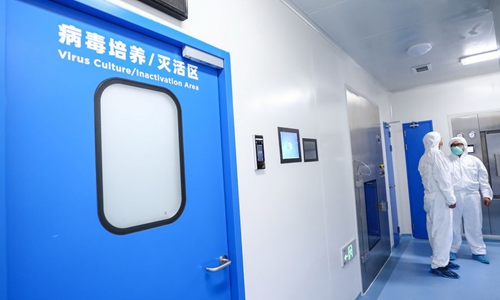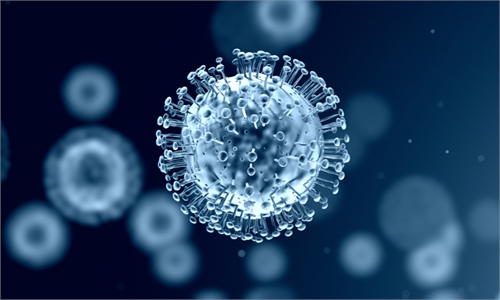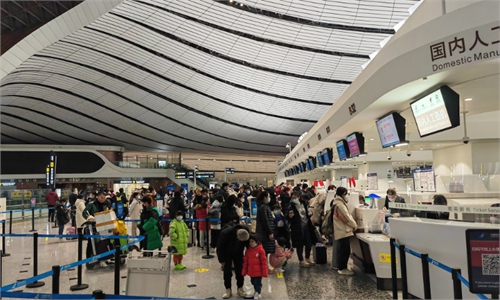Beijing releases specific rules on COVID-related experiments to enhance lab biosafety

Staff members talk beside the virus culture/inactivation area of a vaccine production plant of China National Pharmaceutical Group (Sinopharm) in Beijing, capital of China, April 10, 2020. Photo:Xinhua
Beijing released specific rules on experiments relating to COVID-19 and banned any activities that fall beyond regulatory approval, the capital's health authority said in a newly released notice, in a move to further strengthen COVID-19 laboratory biosecurity.
Activities such as novel coronavirus cultivation, experiments on animal infection and nucleic acid testing can only be carried out after receiving approval from the National Health Commission (NHC) or Beijing Municipal Health Commission, the capital's commission said in the notice.
Special storerooms shall be set up to store COVID-19 strains and samples and those storerooms should be guarded by at least two personnel and two locks and equipped with monitoring equipment, the notice read.
Virologists reached by the Global Times said the notice highlights that China always attached great importance to biosecurity from beginning of the COVID-19 epidemic until now, when the country has optimized its COVID-19 response measures. COVID-19 related experiments should be carried out in a scrupulous and professional manner, and this has always been the standard of the field.
The notice requires disposing and transferring experimental materials for storage when experiments are complete. Transportation of the COVID-19 strains or uncultured samples of potentially infectious biological materials should also be approved by the NHC or Beijing Municipal Health Commission.
As part of the Beijing Municipal Health Commission's effort to strengthen security of COVID-19 laboratory biosafety, the notice requires affiliated health departments to obtain a clear picture of how many labs are conducting COVID-19 related experiments and how they conduct experiments, store strains and samples.
Local health departments should make a record and supervise their activities to prevent laboratory bio-risks, according to the notice.
Laboratories should shoulder their responsibility, conduct thorough risk evaluation and strengthen protection of related personnel, the notice added.
This latest notice released by the Beijing Municipal Health Commission is part of the NHC's effort to strengthen COVID-19 laboratory biosafety.
The notice to strengthen COVID-19 laboratory biosafety released by NHC on January 17 said the novel coronavirus continues to be managed under the second category of pathogenic microorganisms. COVID-19 cultivation and animal infection experiments should be carried out in a laboratory environment with biosafety level III or above.
The handling of uncultured infectious materials and inactivated materials shall be carried out in a biosafety Level II or above laboratory, and the handling of human and animal tissue specimens that have not been reliably inactivated or immobilized shall be carried out in a level III or above laboratory, the NHC said in the notice.
The NHC's notice specified that the virus strains should be sent to a storage facility for holding or be promptly destroyed at the end of the experimental activities. Infectious samples should be destroyed or inactivated immediately after experiments are concluded.
It also highlighted that newly mutated strains isolated from a laboratory environment should be sent to a storage facility within 90 days for safekeeping, the NHC said.
"It is not the first time that the country mentioned the biosecurity of labs. Scientific projects on biosecurity should be carried out in a scrupulous and professional manner. In 2021, China inaugurated the Biosecurity Law to further fortify the legal shield for the establishment and safe operation of biolabs," Yang Zhanqiu, deputy director of the pathogen biology department at Wuhan University, told the Global Times on Wednesday.
During the fight against the COVID-19 epidemic, China swiftly built a number of P2 and P3 biosecurity labs that provided strong technical support for the country to launch quick responses, as well as efficient and safe research on major new infectious diseases in the future similar to COVID-19, experts noted.



